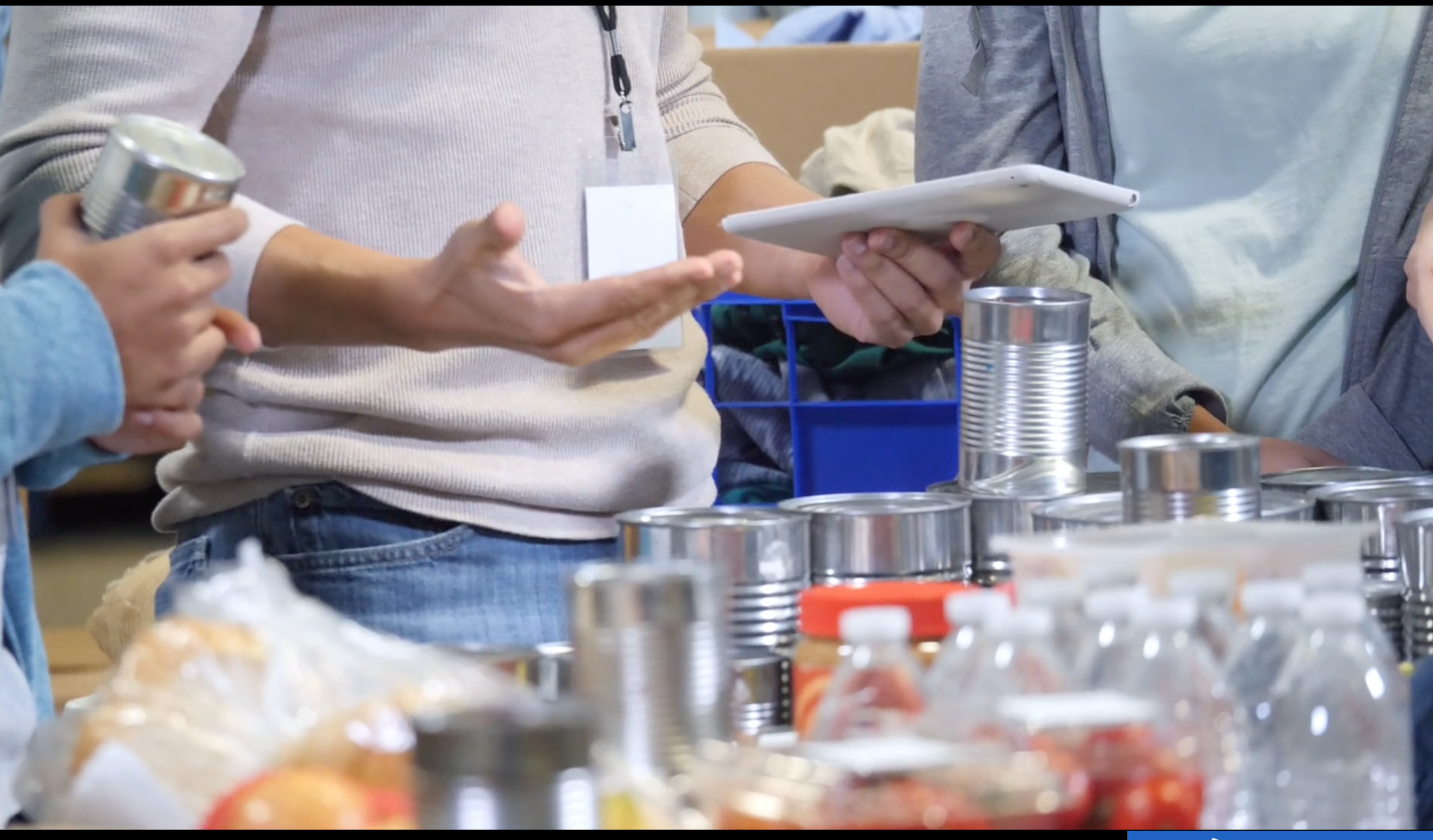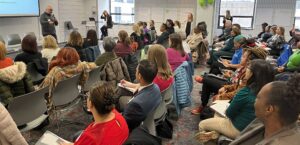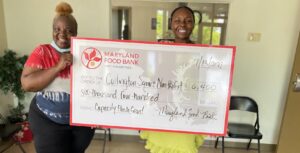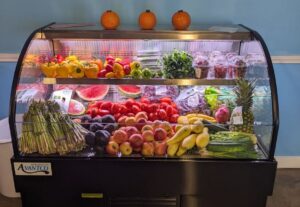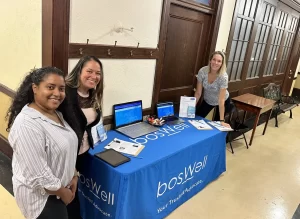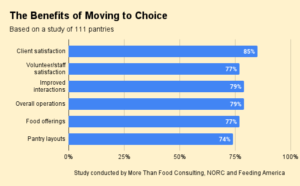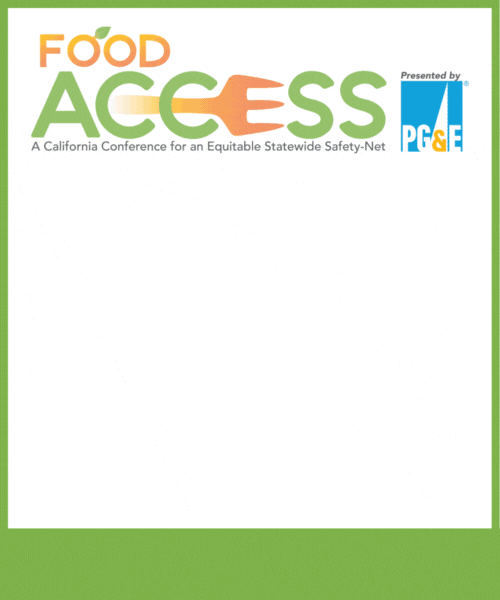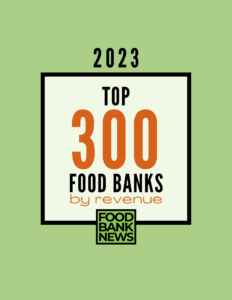Aristotle Mannan’s job as a community health worker in Boston for two years led him to two observations and ultimately, a new model of providing food pantry software that helps to connect food pantry clients with healthcare services.
His first observation was the extensive use of inefficient pen-and-paper record keeping at food pantries. The second was that some of society’s most vulnerable individuals frequently visit food pantries, but miss out on opportunities to connect with primary healthcare providers.
Those findings led him to start bosWell, an enterprise that provides free web-based services to help nonprofits sign up and serve clients. Not only does the software help pantries move toward more modern methods of digital record-keeping, it also provides a pathway and incentives for pantries and health care centers to work together to move clients toward better health.

As Mannan saw it, there was a “stark disconnect” between the dire health needs of some people who visited food pantries, and their ability to access healthcare.
The experience of one gentleman, who has since passed away, stood out. “In the six months I knew him, he made at least 100 trips to emergency departments, but ironically, he was not engaged with the primary care system.” Meanwhile, “he would show up every Thursday at the food bank like it was clockwork.”
Mannan sought to fill this gap. “We started to say, let’s go and talk to these hospitals and healthcare systems and figure out how they are trying to connect with this population that food pantries are already well connected to,” Mannan said.
Healthcare systems have a vested interest in better serving the 75 million low-income Americans who use Medicaid, the largest healthcare system in the country. Mannan estimated that 60 million Medicaid users also go to food pantries.
After speaking with hospitals like Boston Medical Center and Massachusetts General, the consensus was that hospitals did not know how to connect with vulnerable people, or forecast where they were coming from, or what happened to them. “They kind of slipped through the cracks,” Mannan said.
Even people with medical insurance covered by systems like Medicaid were disconnected from the healthcare system due to a lack of engagement, information, and access. Hospitals also did not have proper records of these individuals. Addresses or phone numbers were out of date, making it hard to keep track of people.
To tackle this issue, bosWell developed a model that enables healthcare systems to collaborate with food pantries. When a person shows up at a food pantry that is in the vicinity of any healthcare site or hospital partnered with bosWell, they get a text notification informing them of the primary care services they can access nearby. The person can then engage with these services if they choose to.
“We are creating a framework to help people visiting pantries by connecting them to care providers, and resolving the paradox where people are covered by these care services, but do not access them,” explained Mannan.
bosWell is so far working with two managed healthcare providers – one in Massachusetts and one in Rhode Island – as well as about 200 food pantries in 15 states. The company has identified several thousand members of the healthcare systems who also frequent area food pantries.
Once a client grants consent, bosWell can then initiate healthcare-related text messages to clients while they are at the food pantry. “They may only be at the food pantry for five or ten minutes, or not go that often,” Mannan said. “It’s a fleeting moment. We want to make the connection as real time as possible.”
bosWell is establishing a subscription-based model in which the healthcare systems pay a fee based on the savings they incur by being able to provide preventative care, versus costly emergency services. Eventually, bosWell envisions sharing some of that revenue with the pantries.
For now, the upfront costs of providing the software for free to pantries is currently being covered through support from various entities, including the National Science Foundation, the American Heart Association’s Social Impact Fund, the Richard King Mellon Foundation, the Draper Richards Kaplan Foundation and others.
Making the software available for free to pantries was important to Mannan. He noted that food pantries “are doing a ton of work with very limited resources in the first place. I think we are seeing a dilemma where pantries have more and more work, but not enough resources.”
Although the pandemic slowed its growth, Boswell, with seven employees, is now in the process of reaching out to more pantries and expanding its network. Sometimes it faces skepticism around its ability to offer a software solution for free.
“We know there are other solutions in the market that have been there for 10 or 15 years, but at the same we are optimistic,” Mannan said. “We are up and running and have data points to show it. We are trying to do something with value.” – Aryan Rai
Aryan Rai is a graduate student of journalism at Boston University.
PHOTO, ABOVE: The bosWell software works with a pantry’s existing devices.
Like what you’re reading?
Support Food Bank News
This article was made possible by the readers who support Food Bank News, a national, editorially independent, nonprofit media organization. Food Bank News is not funded by any government agencies, nor is it part of a larger association or corporation. Your support helps ensure our continued solutions-oriented coverage of best practices in hunger relief. Thank you!
Connect with Us:
